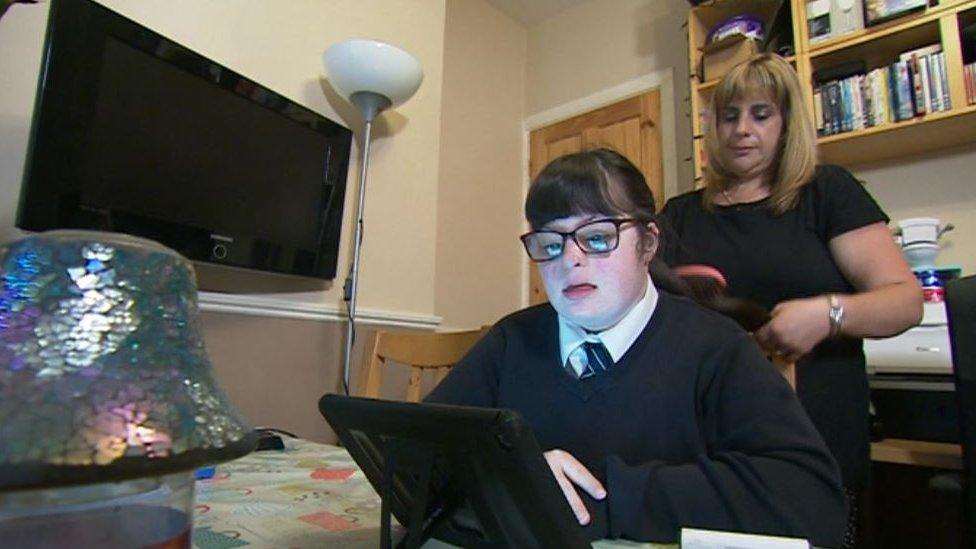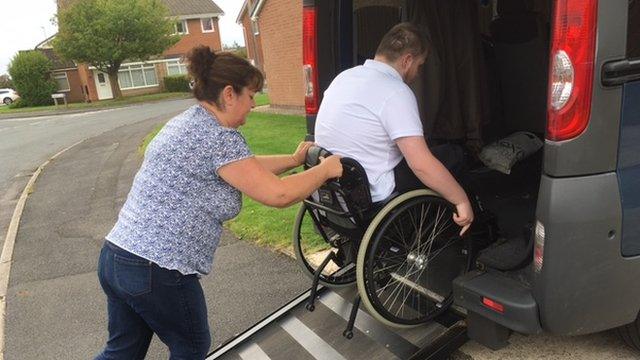Disabled girl faces £870 Hereford school bus bill
- Published

Leia is a "happy little girl" who was looking forward to starting sixth form, says her guardian
A teenager with cerebral palsy who "loves" school will not be able to attend next term due to council cuts to travel funding, says her guardian.
Leia Daunter, from Ross-on-Wye, was due to transfer to Barrs Court sixth form college, Hereford, in September.
Her guardian said Leia's bus fare would now cost more than than £870 a year.
Herefordshire Council said it introduced a travel charge for children aged 16 and over with special educational needs (SEN) five years ago.
Currently, wheelchair-user Leia, who has microcephaly, epilepsy and spastic diplegia, is picked up every morning and evening by minibus, to be taken the 15 miles from her home to the Barrs Court special school in Hereford.
The teenager, who turned 16 in December, needs to transfer to the specialist college as it is "the only school in the county for her ability," said Paulette Evans-Baldwin.
Ms Evans-Baldwin said she challenged the council's policy to stop funding travel for Leia without success.
"It's absolutely disgusting that she will be unable to continue with her education because of transport costs," she said.

Barrs Court sixth form college is the closest school with specialist provision for Leia, says her guardian
A Herefordshire council spokesperson said the "parental contribution" was "for all children aged 16 and over with special educational needs wishing to use the council's school transport services".
"However, Barrs Court School does administer a scheme that offers families and carers of a SEN child financial assistance with school transport fees if they meet their funding criteria," the spokesperson added.
Ms Evans-Baldwin said she currently received £6.80 a fortnight from the council towards her ward's keep, but does not qualify for further subsidies.
Contact, a charity representing families with disabled children, said the impact of losing transport was "huge" for youngsters who needed to travel further to access education.
"It is grossly unfair that the law says a young person is expected to be in school or training until 18, but does not have the right to transport to enable them to get there once they turn 16," said Una Summerson, the charity's head of policy.

Follow BBC West Midlands on Facebook, external, on Twitter, external, and sign up for local news updates direct to your phone, external.
- Published26 June 2019

- Published3 May 2019

- Published10 September 2017
